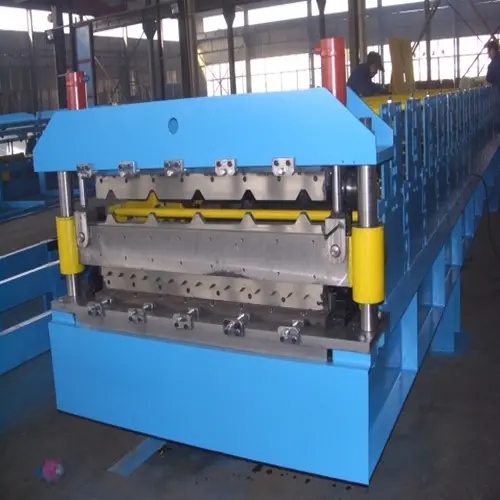
The Evolution and Importance of Wall Angle Making Machines in Drywall Construction
The construction industry has witnessed significant advancements over the years, particularly in the realm of drywall installation. Among these innovations, wall angle making machines have revolutionized how professionals approach the task of erecting walls. These machines streamline the procedure of creating drywall framing components, specifically focusing on gypsum stud and track systems. Understanding the mechanics and importance of these machines opens a window to more efficient construction methods.
Overview of Wall Angle Making Machines
Wall angle making machines are specialized tools designed to create precise angles and shapes in drywall metal tracks. Typically utilized in commercial and residential projects, these machines are crucial for producing the framework necessary to support drywall installations. The process involves the manipulation of metal sheets to create angled components that facilitate the installation of gypsum board and provide structural support.
Mechanisms and Functionality
Most wall angle making machines incorporate advanced engineering technology. They are equipped with cutting, bending, and shaping capabilities that enable them to produce metal components with unparalleled precision. The machine operates by feeding metal strips into the system, which are then cut to size and formed into the desired angles. This not only improves efficiency but also significantly reduces the likelihood of human error during the manual fabrication process.
The ability to customize angles based on project specifications is another notable feature. Wall angle making machines can produce various stud sizes and angles, accommodating different building designs. This versatility is essential, particularly in large construction projects where multiple varying designs may be required.
Benefits in Construction
The use of wall angle making machines provides numerous advantages that ultimately lead to improved project outcomes. Firstly, the enhanced precision and efficiency help to minimize waste. With the ability to create specific angles and sizes directly from raw metal coils, there is significantly less scrap material compared to traditional methods. This not only reduces material costs but also contributes to environmentally conscious practices in the industry.

Secondly, these machines expedite the overall construction timeline. Automated processes mean that wall framing components can be produced in bulk, allowing for faster installation on-site. This speed does not come at the expense of quality; rather, it ensures that the ends meet specific standards, avoiding potential issues during construction.
Impact on Labor and Skills
While wall angle making machines streamline operations, they also influence the labor force in construction. The demand for skilled operators who understand the mechanics of these machines is increasing. Training programs have emerged to bridge the skills gap, equipping workers with the necessary expertise to operate advanced machinery safely and effectively. This shift underscores the importance of continuous learning and adaptation within the construction industry.
Future Trends
As technology advances, we can anticipate further innovations in wall angle making machines. Features like smart technology integration, where machines can optimize production based on real-time data analysis, are likely to emerge. Additionally, improvements in materials used for tracks and studs may lead to even lighter and more durable options, enhancing the overall quality of drywall systems.
Sustainability is another factor that will likely push the evolution of wall angle making machines. With a global move toward environmentally friendly construction practices, manufacturers will be pressured to create machines that minimize energy consumption and utilize recyclable materials more efficiently.
Conclusion
The advent of wall angle making machines marks a significant turning point in drywall construction processes. Their ability to enhance accuracy, reduce waste, and speed up the installation process has made them indispensable in the construction industry. As these machines evolve with advancements in technology and sustainability, they will continue to shape the future of drywall installation. Embracing these innovations will not only streamline operations but also pave the way for a more efficient and responsible construction industry.